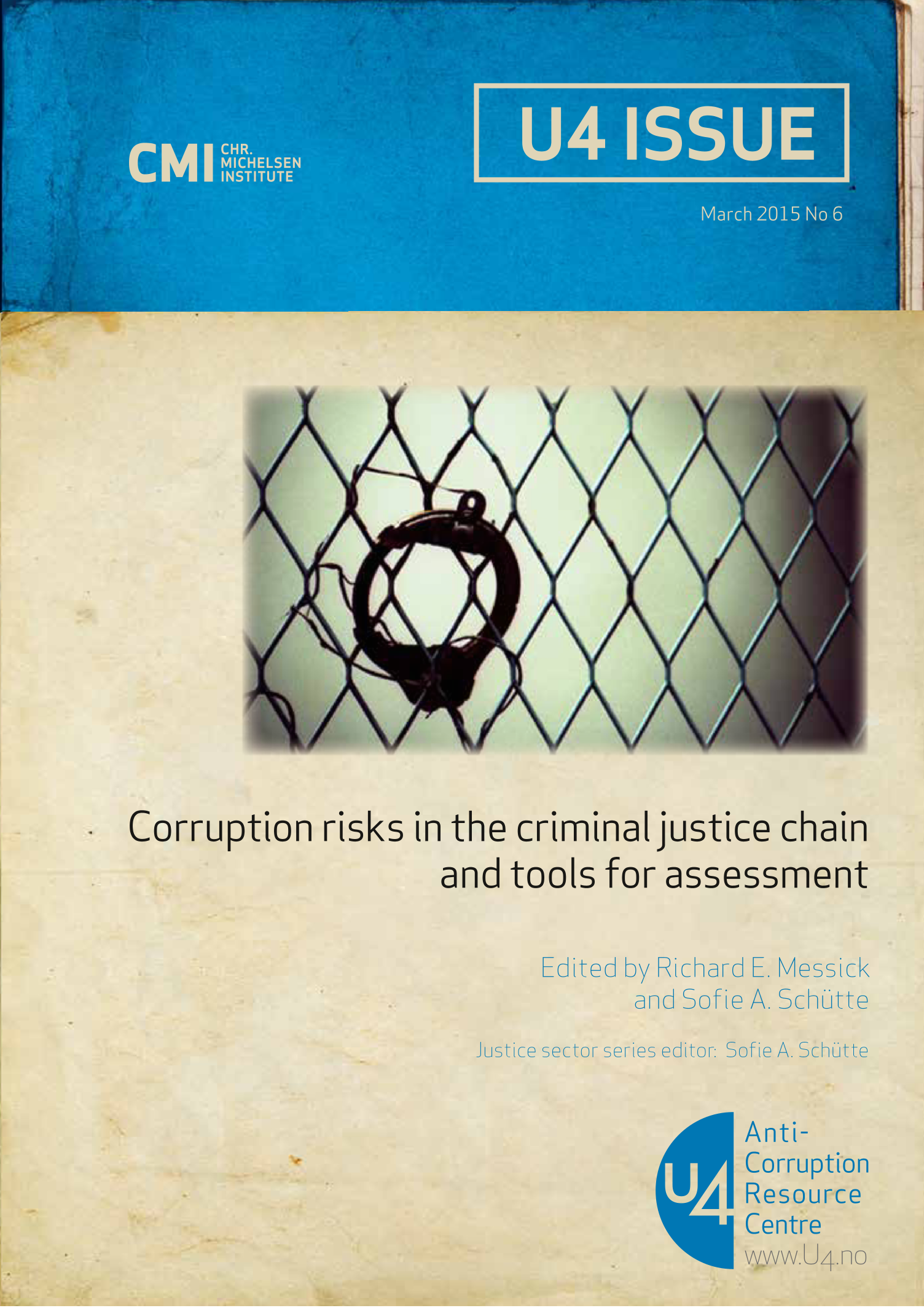U4 Issue
Corruption risks in the criminal justice chain and tools for assessment
This U4 issue paper provides policymakers in developing nations, their citizens, and U4’s partners in the donor community with an overview of where corruption is most likely to arise in the investigation, prosecution, trial, and incarceration stages of the criminal justice process. Each chapter focuses on a specific stage, providing a summary of the principal decision makers involved, the tasks they perform, the most common types of corruption risk, the tools available to assess the risks, and, where sufficient experience exists, an evaluation of the usefulness of these assessment tools. While some basic risk management approaches are noted, the emphasis is on analysis and assessment of problems.
Much of what is known about corruption at the different stages of the criminal justice system comes from developed country experiences. In many cases, however, the drivers of corruption are the same across all countries. In using the available set of tools to assess corruption risks in criminal trials and appeals, the greatest challenge for practitioners is finding the relevant parts of general assessment tools that assess the particular corruption risks. The paper concludes with an appeal for integrated corruption risk assessment tools and accessible reporting. Only a sector-wide lens will allow identification of the linkages and dependencies within the criminal justice chain, providing a basis for targeted reform efforts and a comprehensive anti-corruption strategy.

Cite this publication
Messick, R.; Jennett, V.; Hill, G.; Gramckow, H.; Albanese, J.; Schütte, S. 2015. Corruption risks in the criminal justice chain and tools for assessment. Bergen: Chr. Michelsen Institute (U4 Issue 2015:6) 62 p.
Disclaimer
All views in this text are the author(s)’, and may differ from the U4 partner agencies’ policies.
This work is licenced under a Creative Commons Attribution-NonCommercial-NoDerivatives 4.0 International licence (CC BY-NC-ND 4.0)


